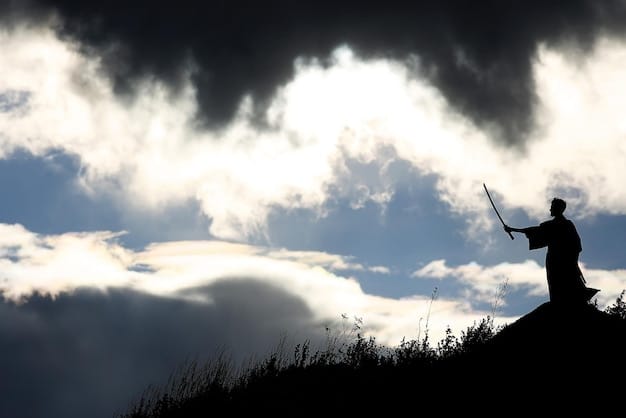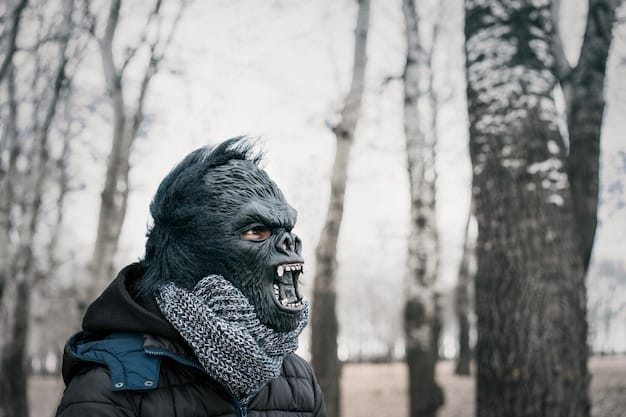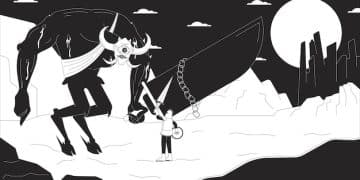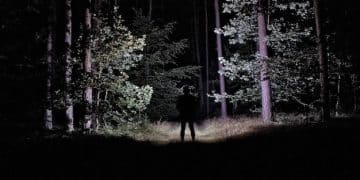The Witcher Code: Rules and Ethics in a Morally Gray World

The Witcher Code is a set of principles that guides witchers, monster hunters for hire, in a world filled with complex moral dilemmas, exploring the balance between neutrality, duty, and personal conviction.
The world of the Witcher is not one of black and white. Instead, it’s a tapestry woven with shades of gray, where moral choices are rarely easy and often come with consequences. Within this complex landscape, witchers, monster hunters for hire, operate under a set of guidelines known as the Witcher Code: Exploring the Rules and Ethics That Guide Witchers in a World of Moral Gray Areas. But what exactly is this code, and how does it shape the actions of these enigmatic figures?
Understanding the Witcher Code
The Witcher Code isn’t a rigid set of laws etched in stone; rather, it’s a collection of principles and traditions that guide witchers as they navigate the treacherous landscape of their profession. It’s a framework for ethical decision-making in a world where monsters and humans alike are capable of great cruelty and kindness.
The Code aims to ensure witchers remain neutral, professional, and focused on their primary task: eliminating dangerous monsters that threaten humanity. It emphasizes the importance of fulfilling contracts, avoiding unnecessary involvement in local politics, and maintaining a healthy detachment from the moral quagmires that often surround their work.

Core Tenets of the Witcher Code
While the specific interpretations and applications of the Witcher Code may vary from one witcher to another, there are several core tenets that form the foundation of their ethical framework:
- Neutrality: Witchers are expected to remain neutral in conflicts, avoiding taking sides in wars or political disputes. Their focus is on monster hunting, not shaping the course of human affairs.
- Contract Fulfillment: A witcher’s word is their bond. They are expected to honor their contracts and complete the tasks they’ve agreed to, regardless of personal feelings or changing circumstances.
- Protection of Innocents: While witchers may not always be heroes, they are generally expected to protect innocent people from harm, especially when monsters are involved.
- Focus on Monsters: The primary duty of a witcher is to hunt monsters that pose a threat to humanity. They are not mercenaries or assassins, and they should not use their skills for personal gain or political purposes.
The Witcher Code, therefore, acts as a compass, guiding these monster slayers through a world where the lines between good and evil are often blurred. It’s a guide, not a set of unbreakable rules, intended to keep them focused on their purpose while retaining a degree of impartiality.
The Origins and Development of the Code
The Witcher Code didn’t appear overnight. It evolved over time as witchers confronted increasingly complex moral dilemmas and sought to establish a set of best practices for their profession. Its origins can be traced back to the early days of the witcher schools.
The early witcher schools, such as Kaer Morhen, were established to train monster hunters and equip them with the skills and knowledge necessary to survive in a world teeming with dangerous creatures. These schools not only taught combat and alchemy but also instilled a sense of discipline and ethical responsibility in their students.
The Influence of Vesemir and Other Mentors
Characters like Vesemir, the oldest and most experienced witcher at Kaer Morhen, played a crucial role in shaping the Witcher Code. Vesemir’s wisdom and guidance helped generations of witchers navigate the moral complexities of their profession, teaching them the importance of neutrality, contract fulfillment, and protecting the innocent.
- Kaer Morhen’s Legacy: The oldest witcher school, setting the initial ethical standards.
- Vesemir’s Guidance: His teachings shaped the moral compass of many witchers.
- Trial by Experience: The Code evolved through real-world challenges and difficult choices.
The Witcher Code, in summary, came about not from written doctrines but from actual experience, teaching, and leadership. It’s a living set of guidelines refined over years of moral tests.
The Witcher Code: A Matter of Interpretation
While the Witcher Code provides a general framework for ethical decision-making, its interpretation is often left to the individual witcher. This can lead to variations in behavior and moral stances, as different witchers weigh the principles differently.
This subjectivity is where the true struggle of the witcher lies. Each contract brings its own set of grays, each decision weighing heavily on the witcher’s conscience. It’s not about blindly following rules, but about applying them to the specific circumstances at hand.

Geralt of Rivia: An Example of Moral Flexibility
Geralt of Rivia, the protagonist of The Witcher series, is a prime example of a witcher who often bends the rules of the Code to align with his own sense of justice. While he generally adheres to the principles of neutrality and contract fulfillment, he is not afraid to deviate from them when he believes it is the right thing to do.
- Breaking Neutrality: Taking sides when innocents are threatened.
- Questioning Contracts: Refusing to fulfill contracts that feel unjust.
- Choosing Lesser Evils: Making difficult choices between bad options.
In essence, the Witcher Code, while present, remains flexible, allowing witchers to deal with each situation as they deem correct. This is especially true for someone like Geralt, who continuously tests the limits of those ethical boundaries.
When the Code is Broken: Consequences and Justifications
Breaking the Witcher Code is not without consequences. While there is no formal witcher police force to enforce the rules, witchers who consistently violate the Code may face ostracism from their peers, loss of reputation, and difficulty finding contracts.
Sometimes, however, witchers may feel justified in breaking the Code if they believe it is necessary to protect innocent lives or prevent a greater evil. These justifications often involve weighing the potential consequences of their actions and making difficult choices between competing moral obligations.
The Line Between Right and Wrong
The decision to break the Witcher Code is never easy, and it often forces witchers to confront their own beliefs and values. They must weigh the potential benefits of their actions against the risks and consequences, and they must be prepared to live with the choices they make.
- Ostracism: Facing rejection from other witchers.
- Reputation Damage: Losing the trust of potential clients.
- Moral Conflict: Wrestling with the guilt of breaking the Code.
In conclusion, while breaking the Code has possible consequences, it also allows for moments of remarkable justice, where morality outweighs strict rules.
The Witcher Code in a Modern Context
The Witcher, while set in a fantasy world, explores timeless themes of morality, ethics, and the struggle to do what is right in a world filled with ambiguity. The Witcher Code, therefore, resonates with audiences who grapple with similar challenges in their own lives.
In a world where information is readily available and opinions are often polarized, the Witcher Code encourages critical thinking, independent judgment, and a willingness to question established norms. It reminds us that morality is not always black and white, and that true ethical behavior requires careful consideration, empathy, and a commitment to doing what is right, even when it’s difficult.
Lessons for the Real World
The Witcher Code offers valuable lessons for navigating the complexities of the modern world. It teaches us the importance of neutrality, the value of keeping our word, and the need to protect those who are vulnerable. It also reminds us that ethical decisions are rarely easy and that we must be prepared to face the consequences of our choices.
- Critical Thinking: Evaluating situations independently.
- Empathy: Understanding and considering the perspectives of others.
- Responsibility: Taking ownership of our actions and their consequences.
In this light, The Witcher Code, despite its fictional origins, teaches real-world applications of morality.
The Future of the Witcher Code
As the world of the Witcher continues to evolve, the Witcher Code will likely continue to be debated, reinterpreted, and challenged. New generations of witchers will grapple with the same moral dilemmas as their predecessors, and they will find their own ways to apply the principles of the Code to the changing circumstances of their world.
Ultimately, the future of the Witcher Code will depend on the choices made by individual witchers. As long as they remain committed to seeking justice, protecting the innocent, and upholding the values of neutrality and professionalism, the Witcher Code will continue to guide them in their quest to rid the world of monsters and uphold a measure of balance in a world of increasing chaos.
| Key Point | Brief Description |
|---|---|
| ⚔️ Neutrality | Witchers remain impartial in conflicts. |
| 📜 Contracts | Agreements must be honored. |
| 🛡️ Innocents | Protection from harm is paramount. |
| 🐺 Monsters | Primary focus is hunting dangerous beasts. |
FAQ
▼
The Witcher Code is a set of ethical guidelines that witchers, monster hunters for hire, follow to navigate moral dilemmas in their profession. It emphasizes neutrality, contract fulfillment, and protecting innocents.
▼
No, the Witcher Code is more of a guideline than a strict set of rules. Its interpretation is often left to the individual witcher, allowing for flexibility in different situations.
▼
Witchers who consistently violate the Code may face ostracism from their peers and loss of reputation, making it difficult for them to find contracts. There are no formal punishments, though.
▼
Witchers follow the Code to maintain professionalism and avoid unnecessary involvement in human affairs. It helps them stay focused on their primary task of eliminating dangerous monsters.
▼
Some witchers may feel justified in breaking the Code if they believe it is necessary to protect innocent lives or prevent a greater evil, often making difficult choices between competing moral obligations.
Conclusion
In conclusion, The Witcher Code: Exploring the Rules and Ethics That Guide Witchers in a World of Moral Gray Areas, is more than just a set of rules; it’s a complex, evolving framework that guides monster hunters through a world rife with moral ambiguities. The Code’s flexible nature allows witchers like Geralt of Rivia to interpret and apply its principles in ways that align with their own sense of justice, often leading to difficult but ultimately necessary choices.





